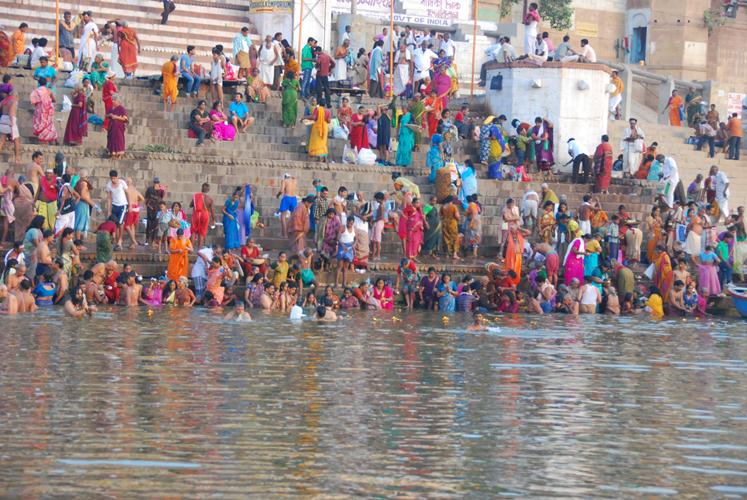
One of the principal cities of the North Indian state of Uttar Pradesh with over 3.6 million people, Varanasi, also called Benares, looks much like any other large urban area in India. It’s chaotic and crowded, with a high disparity between the haves and have-nots. But you quickly sense something different about this former home to Lord Shiva considered by Hindus to be the oldest city in the world.
The River Ganges is the lifeblood of all things in this holiest city in India. She is worshipped as the goddess Ganga, the most sacred river to Hindus who center their lives around her and make pilgrimages from afar to her shores. A dip in her waters is believed to wash away all sin, and most Hindus dream of standing in her tide at least one time in their lives. But she has also been ranked among the top five most polluted rivers of the world; with contaminants more than a hundred times higher than official Indian limits.
The contrast of life along the Ganges is dizzying. At the more than sixty ghats in Varanasi people convene daily to pray, chant and perform ablutions in her brown water. They stand chest deep and cup water in their hands, lifting it and letting it fall. They dip their heads below her surface to cleanse their souls. A few meters over men wash laundry, spread-eagled in knee deep water, swinging and slapping fabrics on rocks to get them clean, then stretching them on the hard banks to dry. Just beyond children swim, jumping from abandoned concrete abutments to shrill laughter and cheers.
Excerpt from the May issue of epicure.
